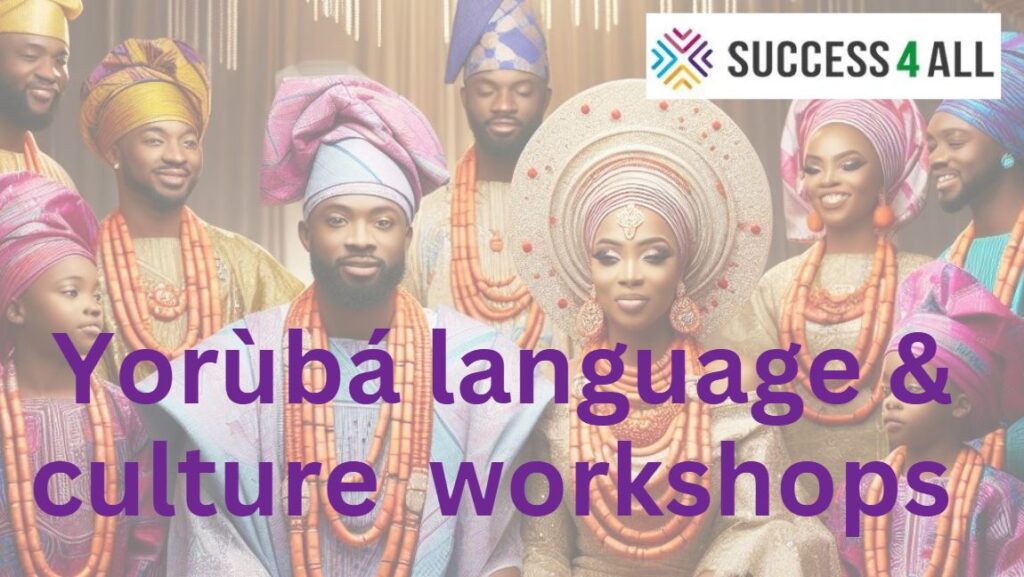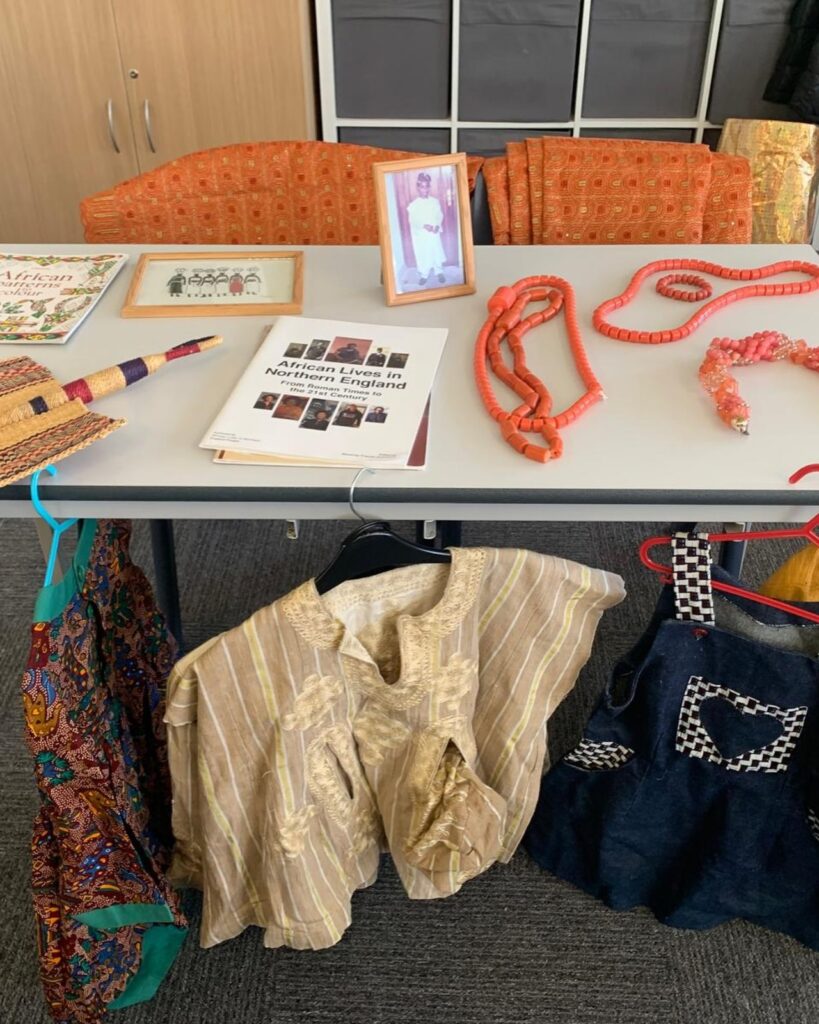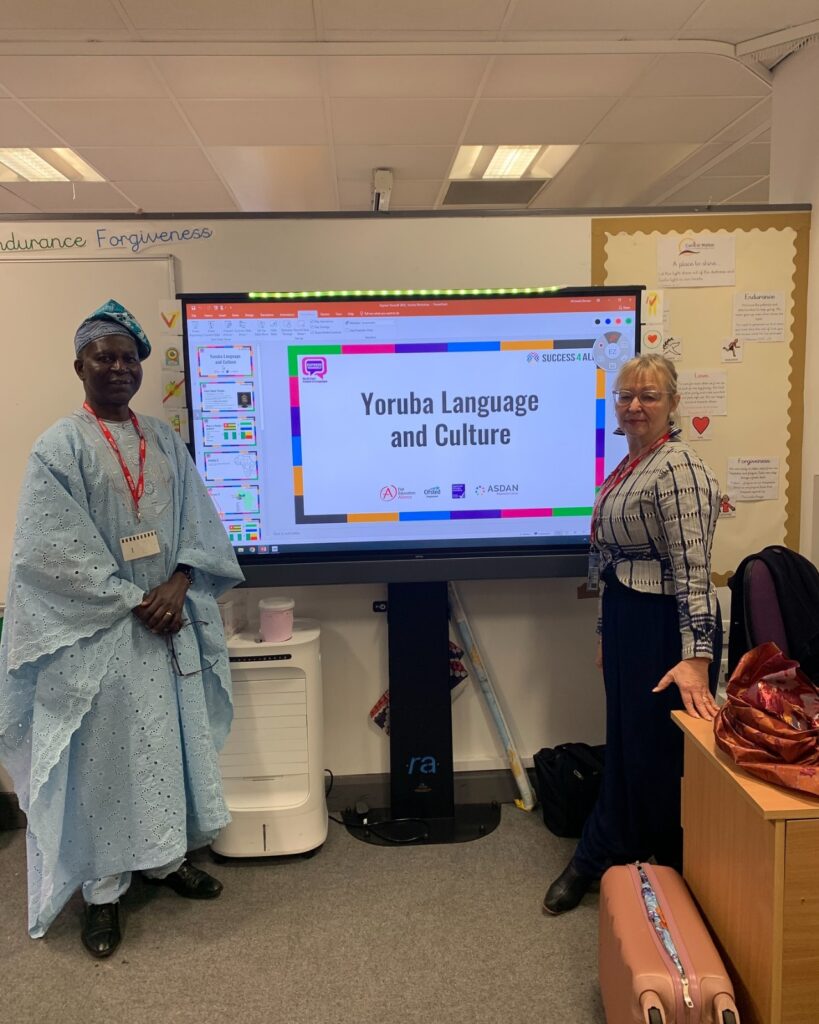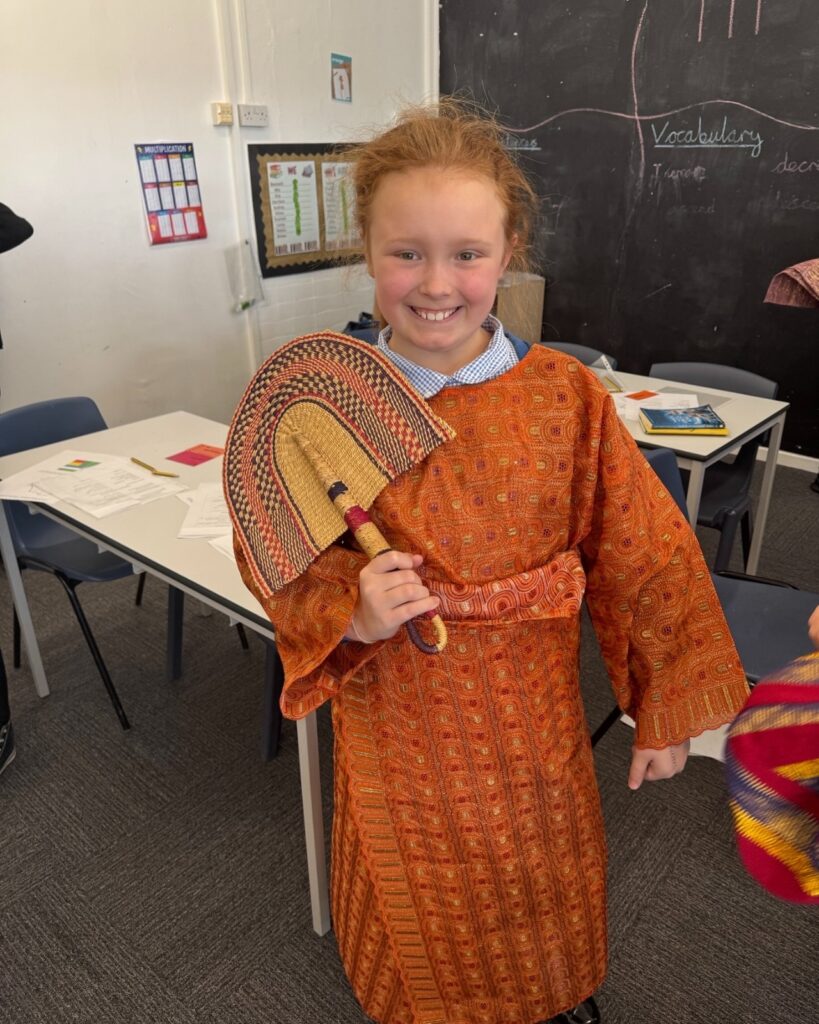By Morakinyo Akinosun and Olayomi Koiki

A 2-hour in-person workshop for schools and youth groups was organised in March 2025 in England, United Kingdom, for learning some basic phrases and dip into the rich Yorùbá language and culture.
The event was organised for primary & secondary schools, youth groups and groups who want an introduction to indigenous African languages.
Organisers asked schools, youth groups and community groups to book for a 2-hour workshopbetween the hours of 12:00-4:00pm, either on Tuesday 4th, Tuesday 11th, Tuesday 18th or Tuesday 25th March, noting that schools/groups could only book for 1 workshop, adding that the workshops would take place at the location of the school, youth group or community group or at another chosen location.
The Yorùbá language is spoken by approximately 44 million people in West Africa, mainly in the country of Nigeria. It is spoken by 1 million people outside of West Africa, in certain parts of Brazil and Cuba. In the UK, there are approximately 15,000 Yorùbá speakers, mainly Nigerians. There is a fairly large Nigerian community (around 1000) in the North East, of which many are Yoruba-speakers.
Yorùbá is a very poetic language. It is the mother-tongue of Wole Soyinka, the first African Nobel Prize Winner for Literature.
The Yoruba people are a tribe in Africa that once built a thriving economy, but were subjugated under European imperialism until they gained their independence in the 19s.
There are many unique aspects of Yoruba culture. These include the prominence of drumming in their music, their extensive use of wood in artwork, and their unique hierarchical style that follows the structure of their families.
The word “Yoruba” signifies many things. Among them are a distinct culture, religion, language, and lifeway. The native Yoruba religion contains over four hundred deities.
The Yoruba people are a tribe who live in and around Nigeria and Benin. They are a distinct group from other African tribes. There are more than three thousand tribes throughout Africa, each with a complex history. Yoruba are the dominant ethnic group in Nigeria and are a significant minority in Benin and Togo. During the strongest period of the Yoruba Oyo Empire, this ethnic group economically and politically dominated all neighboring tribes.
By the 8th century, a powerful city-state already existed in Ile-Ife, one of the earliest in Africa. This City, whose oral traditions link to figures like Oduduwa and Obatala, would later become the heart of the Ife Empire, the first empire in Yoruba History. The Ife Empire, flourishing between roughly 1200 and 1420 CE, extended its influence across a significant portion of what is now southwestern Nigeria and eastern Benin and to modern-day Togo.
Oral history recorded under the Oyo Empire derives the Yoruba as an ethnic group from the population of the City State of Ile-Ife. Ile-Ife, as the capital of the former empire, held a prominent position in Yoruba history. The Yoruba were the dominant cultural force in southwestern and west-central Nigeria as far back as the 11th century.
Ife continues to be seen as the “spiritual homeland” of the Yoruba. The city was surpassed by the Oyo Empire as the dominant Yoruba military and political power in the 11th century.

Students/young people who took part in the workshop were meant to learn about West African countries where Yorùbá is spoken & their geography, gain an understanding of Yoruba people, their history & culture, gain an appreciation of the diversity of African languages and cultures and recognise the importance of cultural preservation.


The event was hosted by Success4All, an educational charity based in the North East of England, which helps children and young people prepare for a brighter future. They provide learning hubs, providing children and young people with educational support, clubs and summer schools as well as running The Language Collaboration Project, supporting language learning of 17 languages in schools.
Follow the KOIKIMEDIA NEWS 🗞️ CHANNEL on WhatsApp
